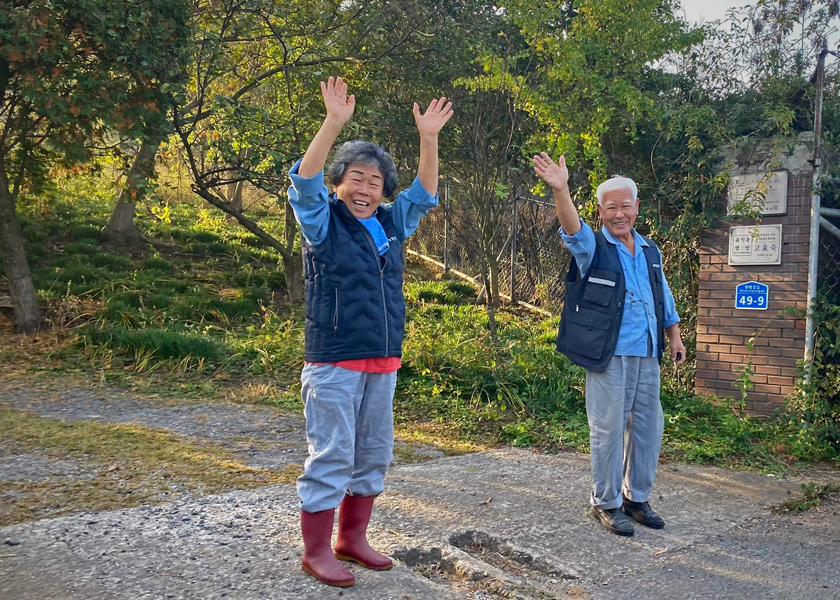On an organic farm in Korea, a volunteer has the chance to learn more about Korea and herself | By Sara Salansky (Winter 2023)
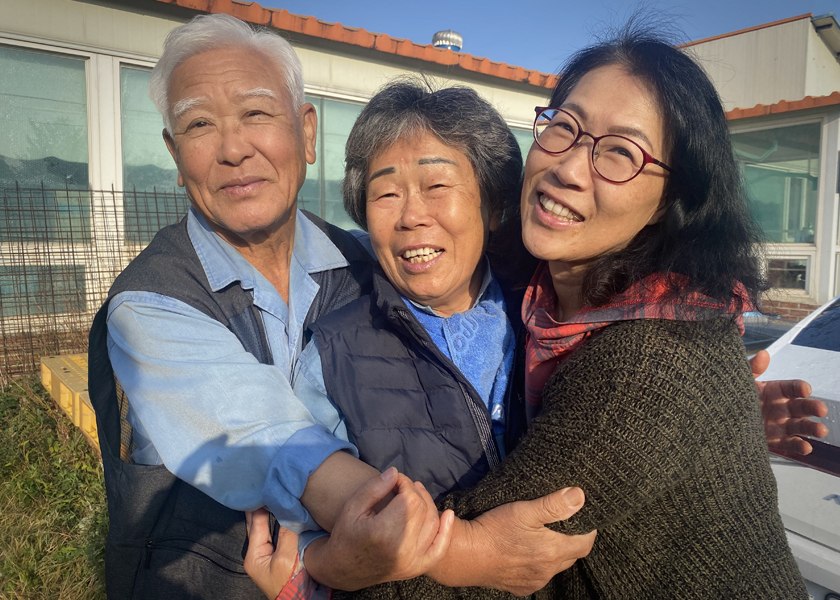
Every time I go to Korea, I try to have a goal for what I want to experience or accomplish.
This time, I decided to let my trip dictate what would become my experiences or accomplishments. I built a basic itinerary, mainly so my family would know where I would be throughout my month-long visit. I made a list of must-see people to visit, places to see fall colors, and plans to volunteer at an organic farm. That was the extent of my planning. For once, I left the goals open-ended.
In the back of my mind, I am always trying to learn something new about Korean culture with each visit. I have developed the belief, over successive visits, that we Korean adoptees should visit our birth country with open minds. We need to take the good with the bad, and hope that we can see more good than bad in our motherland.
There are a lot of aspects of Korean culture that I am ashamed of and wish did not exist. Although I know I cannot change these negative qualities, at the same time, I feel I can make my own small differences by interacting with fellow Koreans on a personal level. That kind of small change, helpful or meaningful interactions that can only happen person-to-person, is what I think I accomplished with my most recent trip. It hit me, after mentally processing the personal meaning of this recent trip, that the primary theme was “one is never too old.”
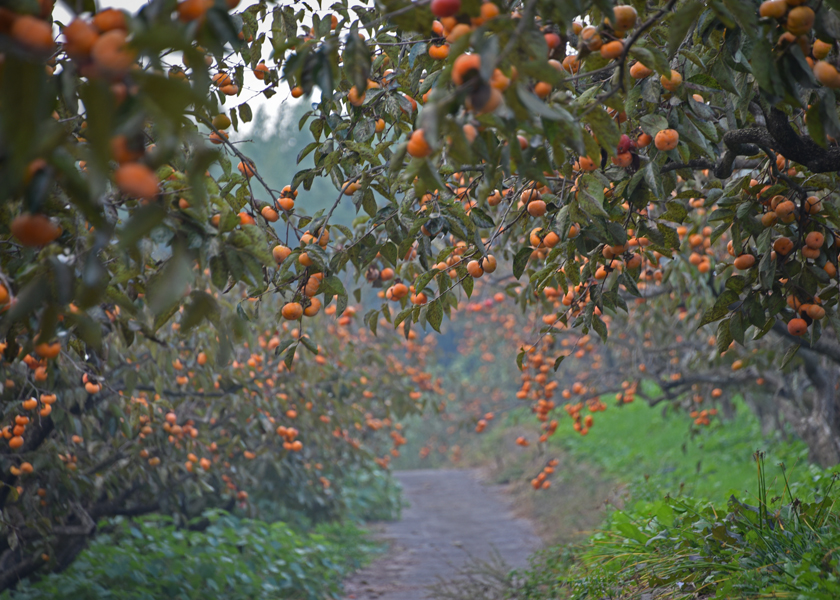
One of my adventures during the month-long visit, was a trip with KQ photographer Stephen Wunrow to work at an organic persimmon farm through the Korea branch of the international Worldwide Opportunities on Organic Farms federation (WWOOF Korea). WWOOF is a 50-year-old federation of associated organizations. Working in more than 130 countries, it places volunteers on organic farms with hosts who need help and want to meet new people. The hosts provide food and housing for volunteers during their stay.
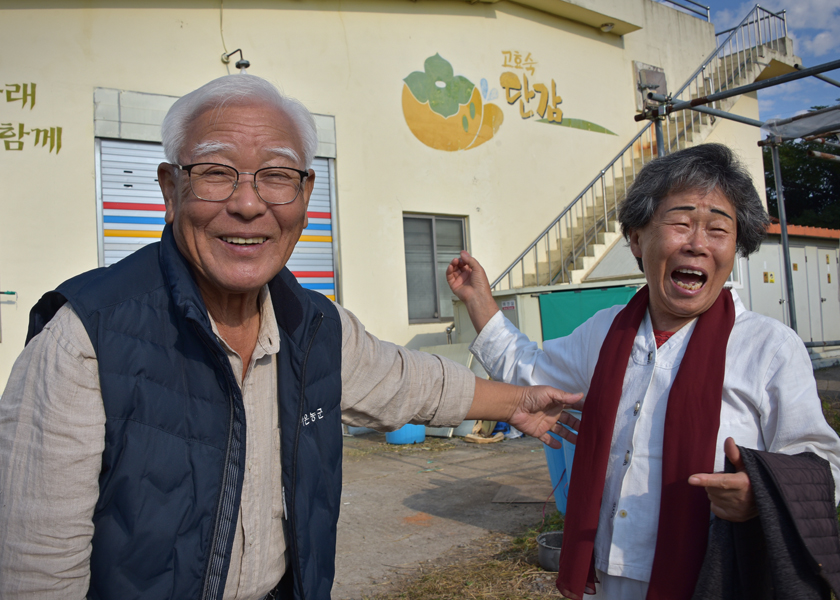
Our WWOOF hosts were a couple who have been married for more than 50 years. They became farmers since 1977, when they purchased the Lohas Farm in Sinbuk, Jeollanam-do (near Naju) in the southwestern corner of South Korea.
The wife of the farming duo, Hyo-sook Go, became our master teacher. She received both her Bachelor’s and Master’s degrees in food engineering from Mokpo University. As a part of training for her role as a WWOOF host farmer, Go participates in an on-line English class every morning at 7 a.m., after doing yoga. Her level of English was sufficient for conversing and for receiving our marching orders for the day. We also relied on Google Translate. Thank goodness for technology!
Husband (Mr. Jeong) had no facility in English, however, this was not much of an impediment to his communication because of his outgoing and hospitable manner. Jeong was a career military officer and achieved the rank of colonel; Go supported him during these years. While living in Seoul, the two decided they needed to change their eating habits. Go had developed a rash and believed it was because of ingesting a chemical on or in the vegetables she was eating. In their search for clean, untreated food, they decided 28 years ago to move to the countryside. Jeong retired, and is now supporting her dreams of living on and working the land with sustainable practices.
It was daunting to watch this power couple work together every day, producing products they are passionate about, and growing other foods for their own use. Go and Jeong grow persimmons and make products in their own farm facility from their own fruit, as well as from imported organic fruits. In addition, they harvest wild mountain herbs to make an herbal drink extract; collect wild mulberries to make a probiotic beverage extract; they produce vinegars with active enzymes; and they also collect and process ginkgo nuts and several other products that enhance the immune system and the gut.
Jeong is now age 80, and Go is 76. The couple have no children, and they run their farm almost on their own, with intermittent (unskilled) help from WWOOF visitors like us. However, they have earned immense respect in their community so when they have big farm jobs to do, area residents come to help them when they ask. Age clearly does not matter for this power couple. Their active lifestyle and good health make them living examples of how their products can help others live healthier lives.
During our visit, they told me that they are just getting back to having volunteers again. For two years, they functioned as a two-person operation because of restrictions posed by the COVID pandemic. This fall was the first harvest season since 2019 that they have had volunteers to help with the persimmon harvest time, a very short and labor-intensive season.
Every time Go and Jeong open their farm to volunteers under the WWOOF program, they open themselves to new people, new personalities, new opinions, and new work ethics that can affect the success or failure of their farm and business.
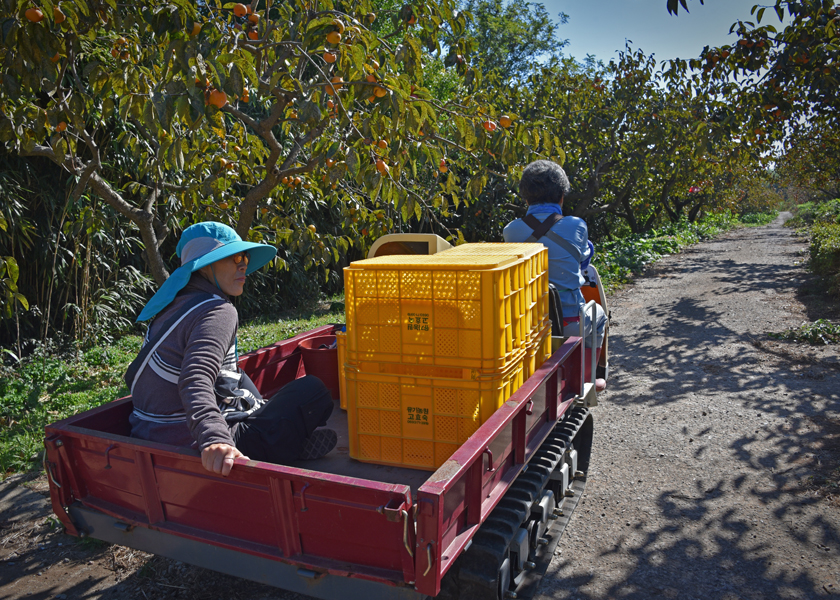
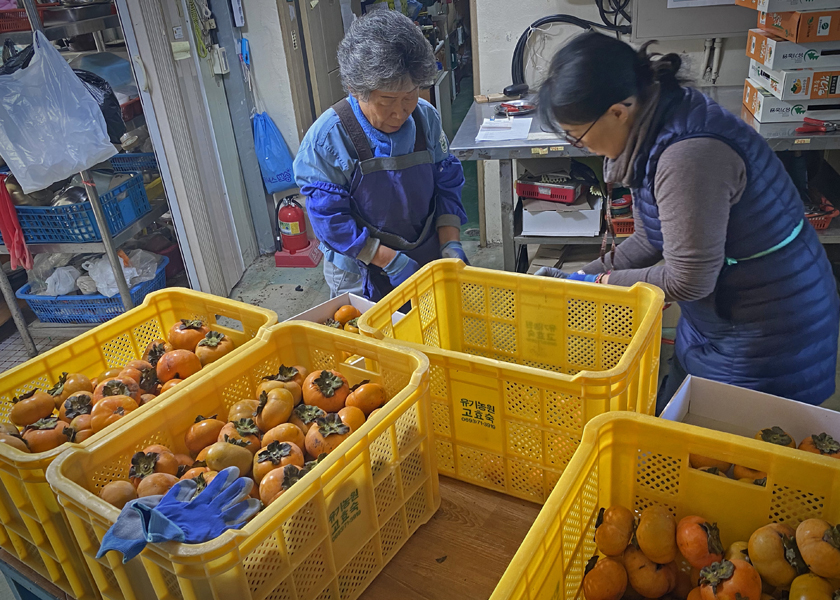
On our first full day, we got the crash course on how to pick persimmons, clean them, and pack them into boxes. Not realizing that there was a deadline, we were enjoying our learning experience. When 4 p.m. hit, we were told that the boxes needed to be packed and delivered by 5 p.m. It was 5:30 that day before the truck could leave for the distribution facility.
We stayed at the farm to enjoy the amazing sunset, oblivious of what was going on at the distribution site with our farm hosts. We ate dinner late, and when our hosts returned, Go was visibly upset and did not even want to sit with us, because she had been crying. She eventually joined us as we were cleaning up from dinner, and told us that it took a lot of hard work and a lot of yelling but she was able to sell all of the 30 boxes we had packed.
On the second day, we were prepared. I worked with a new-found sense of purpose that our hosts’ business reputation was on the line, and it was up to us to come through. Even with my experience of growing up on a farm, and volunteering on a local organic farm in my home state, I felt more stress in those two days of harvesting more than ever before.
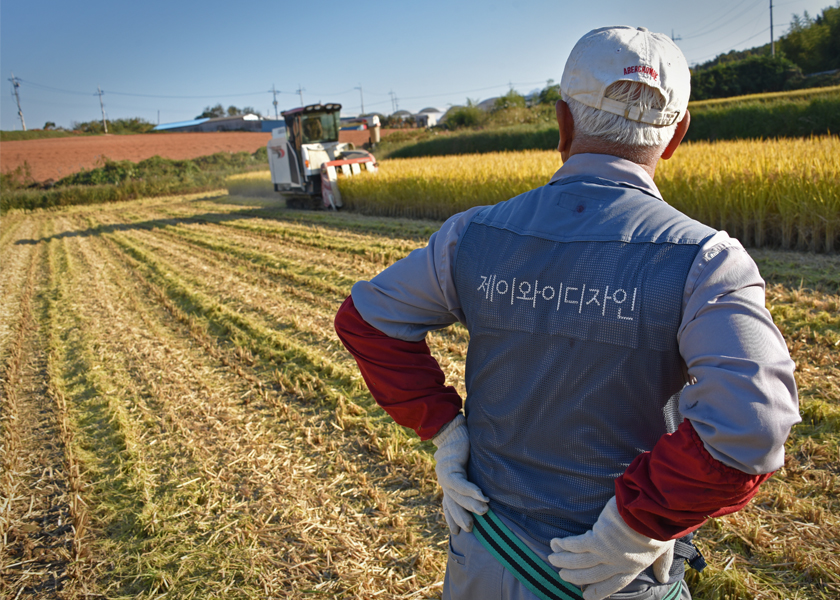
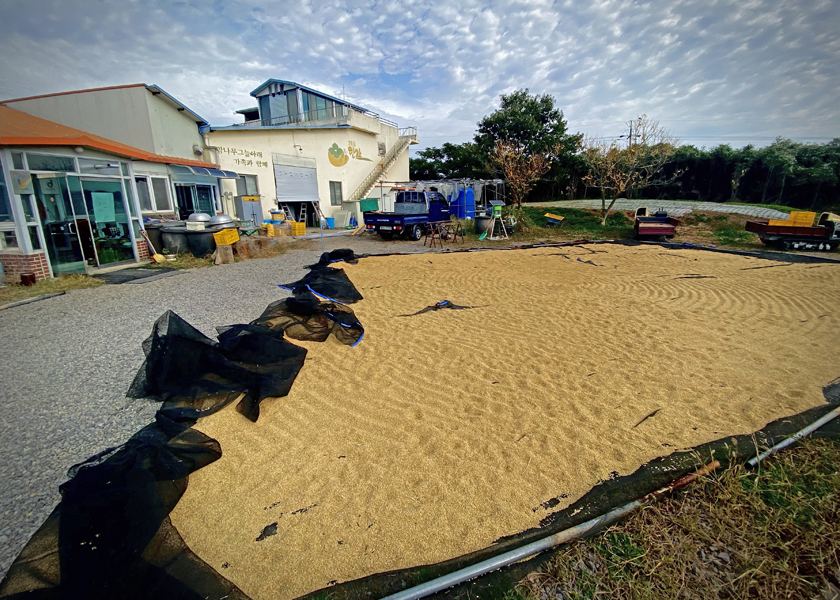
On the positive side, we learned a great deal about organic persimmons and the entire process of picking and cleaning, putting the boxes together, and filling the boxes according to strict standards. On top of that, there were rice-harvesting tasks, and an assignment to lift and move heavy boxes of bottles to store in a more protected area of the farm facility (that was Steve’s job).
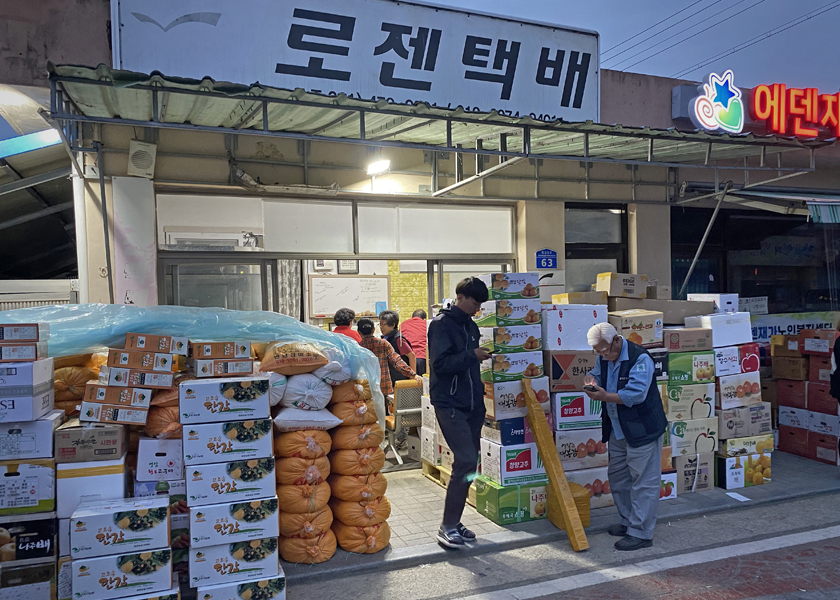
When 5 p.m. came on Day 2, all the boxes were packed on time and ready for transport in the little SUV. We rode along and saw firsthand what happens at the distribution facility; we also witnessed the additional stress the couple go through when not every box of the perishable fruit is sold at the site. The two were phoning prospective buyers as late as 7 p.m. trying to get the day’s harvest sold.
I reflected on Go’s daily schedule – a 76-year-old woman who gets up at 5 a.m., does yoga, makes breakfast, and takes language class at 7 a.m., then works until 5 p.m. with no nap or real break. How many of us can do that every day?
Day 3 (Saturday) proved to be even more stressful. We were invited to sit in on two business meetings about a new venture for Lohas Farms to sell their vinegars and health drinks in the international market. They asked us to sit in on the meetings so that we could rewrite their product labels in English using international trade standards for labeling. We felt more useful in doing this task, using our English language knowledge and editing expertise to help the business in a way that the hosts really needed.
Finally getting home at 11 p.m., we were exhausted, but the work still wasn’t done as we had to find the files to translate to English and get clarification of what needed to be accomplished. They told us that, oh, by the way, they needed the finished product by next Thursday. Talk about stress. It was fortuitous that we were volunteering during those crucial days of harvest, and at the start of the new international sale campaign. True karma – it’s the only way to explain it.
The four days spent with Go and Jeong reminded me that we are never too old for a new venture, and that if we put our minds to a problem, even if there are failures along the way, we need to keep trying, and keep doing what we want to do. Striving and trying new things keeps people young. Our farm hosts were testament to that.
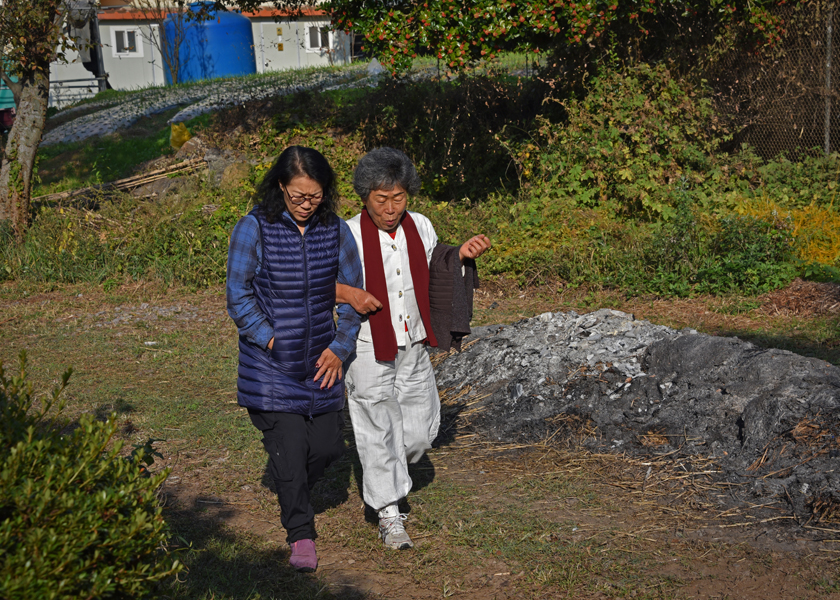
I’m so glad I volunteered with WWOOF and met this wonderful couple. This experience also solidified my desire to start a project to invite foreigners, particularly Korean adoptees, to volunteer on organic farms in South Korea.
The project will be called WWOOF With Us. It will be structured to pair up experienced Korea travelers who are previous WWOOF volunteers with newcomers who have either not been in Korea or have a fear of navigating Korea. WWOOF With Us participants will get a hands-on learning experience on an organic farm, and will also get some guidance in Korean culture, particularly with Korean rural life and organic farms. More information will be coming out in the new year as I fine-tune the program with WWOOF Korea.
As one of the senior members of our global Korean adoptee community, it was good for me to realize that there are more senior people than me in the world embarking on many new adventures. Particularly for Korean adoptees, it is good for us to realize it is never too late to visit the motherland, to study Korean culture, to learn new things, start a new venture, or help someone else overcome their fears. It’s never too late for us to open ourselves to understanding the beliefs of others, and to explain our beliefs to a person from a very different culture.
At its best, both leisure travel and volunteering are about opening ourselves up a new adventure. Volunteering our services in a different culture requires a special way of accepting and going with the flow, but with guidance from services like WWOOF With Us, even inexperienced participants will be able to help out organic farmers with needed labor, while experiencing the beauty and hospitality of Korea.
Sara Salansky is planning to participate in WWOOF Korea again from July 17 through 25, 2023. To join her or to hear more about participating in WWOOF, contact her at: toshi.salanski@gmail.com
